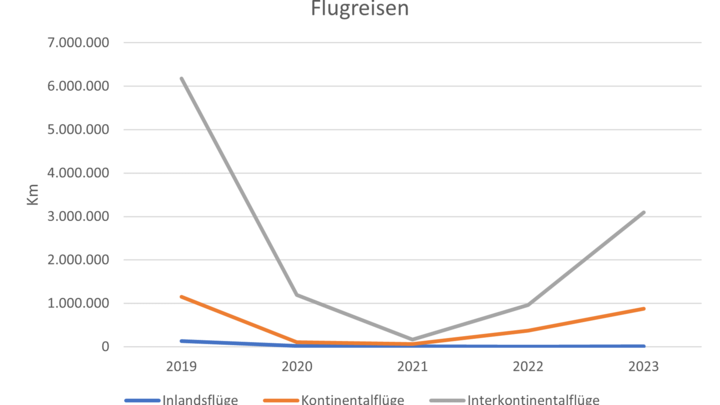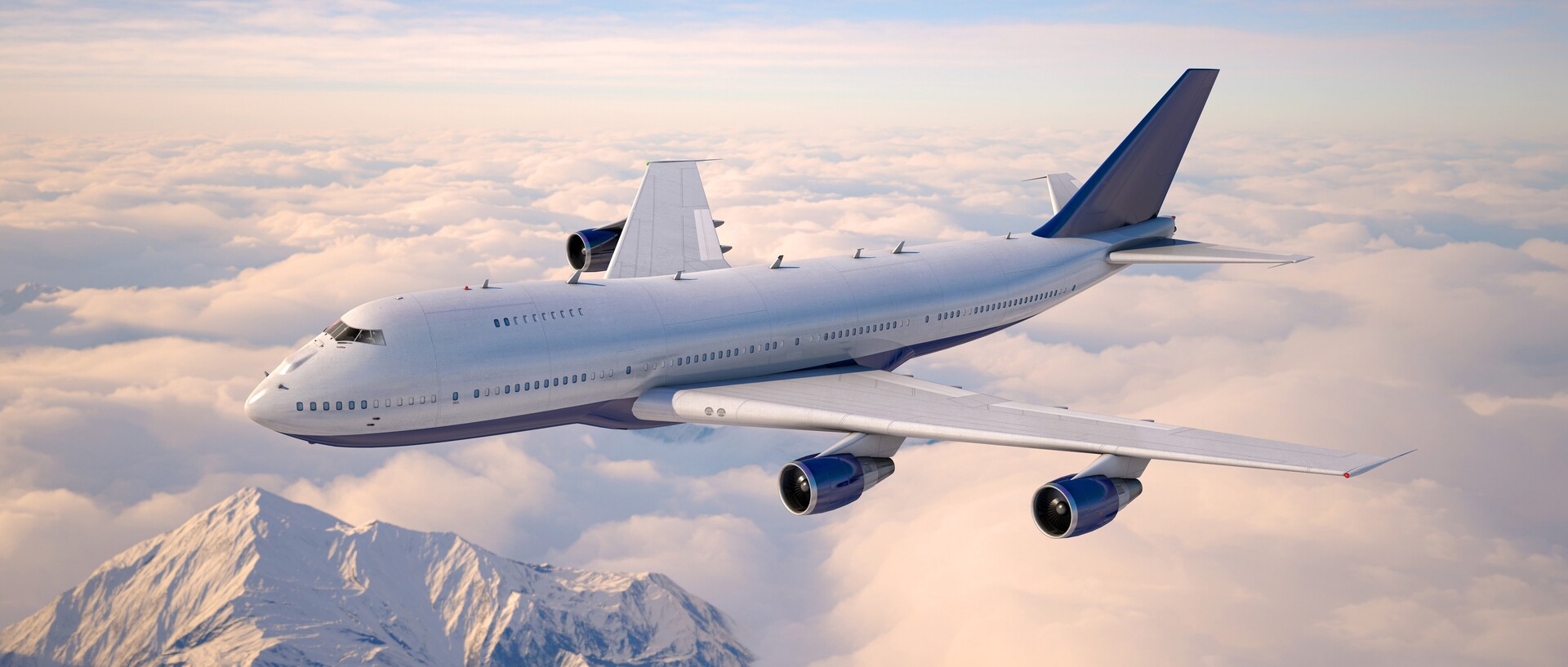Incentive Scheme to Reduce Business Air Travel

Business air travel, often undertaken by researchers but also of administrative staff, accounts for a substantial proportion of these emissions. The President's Office of the university has adopted an internal levy on air travel outside Europe to reduce the total of these emissions, which will come into effect on 1 January 2025.
Flights within Europe are largely covered by the EU Emissions Trading System (EU ETS), which means that air fares already include CO₂ emission costs. However, a comparable mechanism does not exist for intercontinental flights, which is why the costs caused by emissions are not borne by travelers. This is precisely where the new levy comes in, by charging travelers for the cost of emissions. Pricing is based on the EU ETS CO₂ price. The amount collected in one year through the levy will be distributed retroactively in equal parts to all chairs, junior professors, and departments of the university. As a result, the levy does not lead to an additional burden on the university's budget, while maintaining the desired incentive effect.
The incentive scheme, which is based on economic principles, was jointly developed jointly by researchers and employees of the university administration. All university boards and committees adopted it unanimously.
For early-stage researchers, air travel is particularly important for building a personal international network. To avoid excessive restrictions on this group, their annual budgets will be increased at the same time.

Julia Regele
President's Office
Schloss
68161 Mannheim
